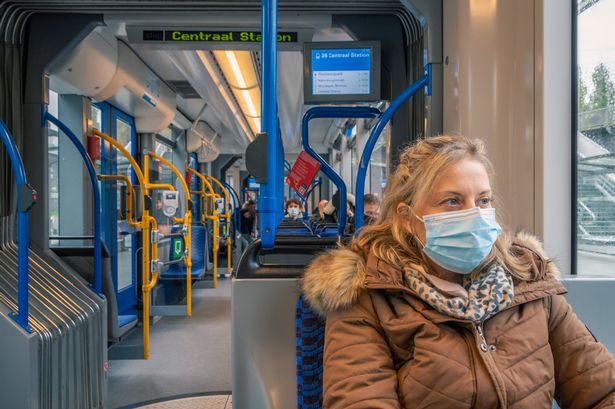Urgent advice has been issued to anyone with symptoms of the latest Covid variants If you feel unwell this autumn you may have caught one of the new Covid strains (Image: Getty Images)
If you feel unwell this autumn you may have caught one of the new Covid strains (Image: Getty Images)
Health officials have issued advice to anyone with symptoms of Covid as cases of the latest variants begin to rise this autumn.
Almost 90 per cent of the Covid cases recorded in the UK recently were one of the two new variants: NB.1.8.1 and XFG, dubbed ‘Nimbus’ and ‘Stratus’, respectively.
Last month’s data by the UK Health Security Agency (UKHSA) found that 77 per cent of Covid cases were classified as XFG or one of its spin-off variants, while 11 per cent were classified as NB.1.8.1.
The UKHSA said in a blog post on Thursday (September 25): “The most common current variants are the XFG and NB.1.8.1 (sometimes referred to in the media as the Stratus and Nimbus variants).
“Current data does not indicate that these variants lead to more severe illness than other variants in circulation.
“It’s normal for viruses to mutate and change, and as more data becomes available on these variants we’ll have a better understanding of how they interact with our immune systems and how to optimise our protection, as well as actions we can take to keep the most vulnerable safe and live our lives as normally as possible.
“The most important thing is for those eligible to get their vaccination when it is due.”
 The UKHSA has issued a Covid update(Image: PA)Symptoms of the new ‘Stratus’ variant
The UKHSA has issued a Covid update(Image: PA)Symptoms of the new ‘Stratus’ variant
When Covid-19 first began to circulate the UK in 2020, common symptoms included fever or chills, a new, continuous cough, and a loss or change to your sense of smell or taste.
As new strains of the virus have emerged, its symptoms have changed over time. Recent strains of the virus are associated with more cold-like symptoms, but the UKHSA says people may also have a fever, continuous cough, shortness of breath, tiredness, body aches, headache, sore throat, blocked nose, loss of appetite, nausea, diarrhoea, or change in sense of taste or smell.
 The new Stratus Covid variant is now the dominant strain in England(Image: Getty Images)
The new Stratus Covid variant is now the dominant strain in England(Image: Getty Images)
Experts have said the ‘Stratus’ Covid variant is also commonly associated with a hoarse or raspy voice, while ‘Nimbus’ is thought to cause ‘razor blade sensation’ – a severe sore throat
What’s the latest Covid advice in the UK?
The UKHSA urged those with symptoms of a respiratory infection, such as Covid, and a high temperature to “avoid contact with vulnerable people and stay at home if possible.”
While there are no Covid restrictions in the UK, those with symptoms who cannot stay at home are urged by the UKHSA to do the following:
- Wear a well-fitting face covering made with multiple layers, or a surgical face mask
- Avoid crowded places such as public transport, large social gatherings, or anywhere that is enclosed or poorly ventilated
- Take any exercise outdoors in places where you will not have close contact with other people
- Cover your mouth and nose when you cough or sneeze; wash your hands frequently with soap and water for 20 seconds or use hand sanitiser after coughing, sneezing and blowing your nose and before you eat or handle food; avoid touching your face
 Those with Covid symptoms are urged to wear a face covering(Image: Getty Images)Are Covid cases rising in the UK?
Those with Covid symptoms are urged to wear a face covering(Image: Getty Images)Are Covid cases rising in the UK?
The latest data by the UKHSA shows an increase in Covid positivity from 7.6 per cent to 8.4 per cent in a week, indicating that a greater percentage of the people being tested are testing positive for the virus. Covid hospitalisations have also increased from 2.00 per 100,000 to 2.73 per 100,000.
Some 1,995 people tested positive with Covid in England in the week ending September 17, a 14.3 per cent increase from the week before.
Dr Jamie Lopez Bernal, Consultant Epidemiologist at UKHSA, said: “Flu and COVID-19 levels are starting to slowly increase. While this is to be expected at this time of year, now is the time for people to come forward for their winter vaccines if they’re eligible, before we start to see more of these viruses in circulation in the winter months.
“Vaccination offers the best protection against flu, COVID-19 and RSV which is why it’s vital that eligible groups get vaccinated.”
